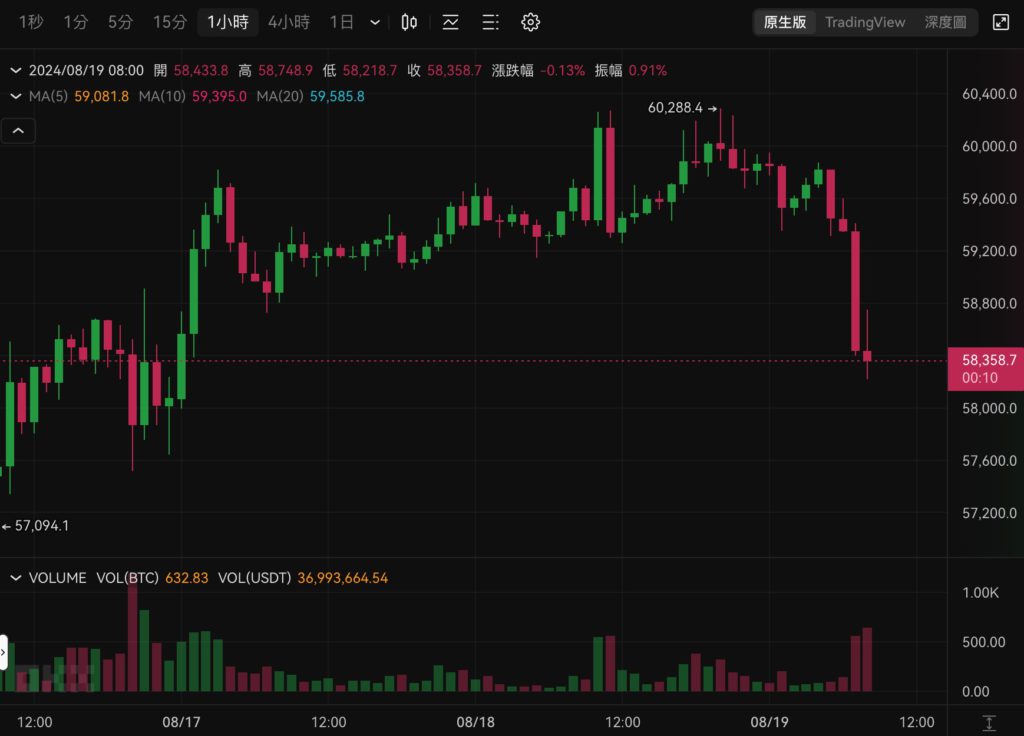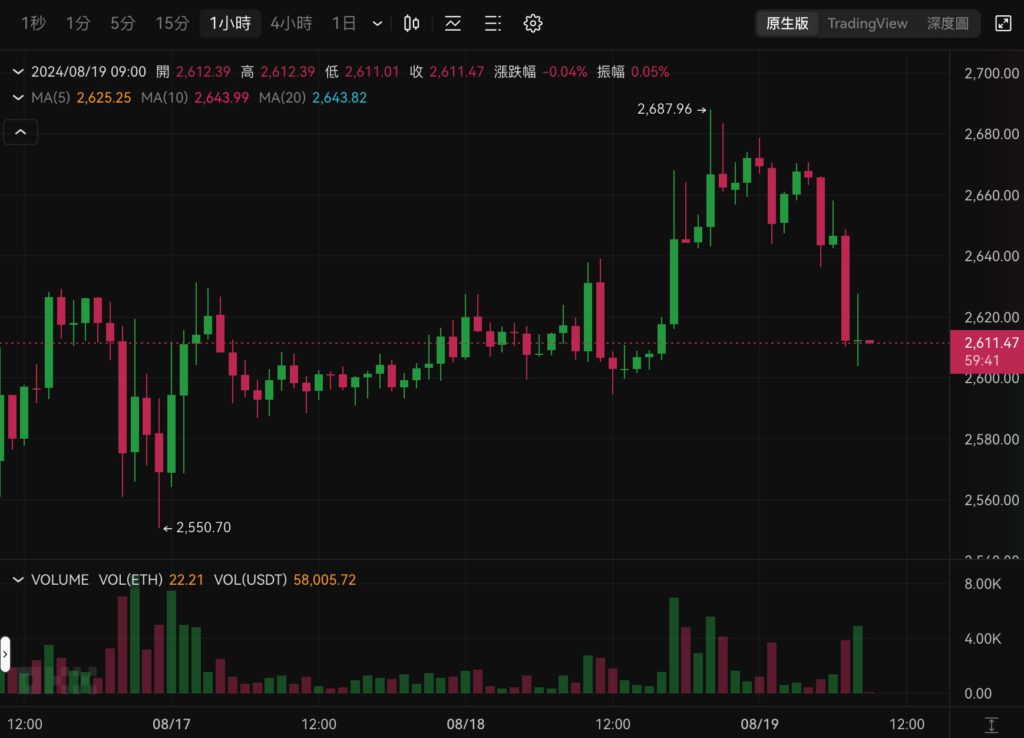At around 8 o'clock last night, Bitcoin once broke through 60,000 U.S. dollars and hit a maximum of 60,288 U.S. dollars, but then selling pressure emerged. After oscillating at 59,000 U.S. dollars for several hours, it began to fall rapidly after 7 o'clock this morning. The lowest price at the time of writing 58,218, nearly giving up most of its gains over the weekend.
At present, it seems that if it cannot hold last week's previous low ($56,200), it may further test back to $54,500. Investors are advised to be careful of fluctuations.

Extended reading: Does the correlation between Bitcoin, gold and US stocks still exist? The answer depends on this key
Ethereum holds on to $2,600
The trend of Ethereum is the same as that of Bitcoin. It hit a maximum of $2,687 last night and then turned downward. At the time of writing, the minimum was $2,603. If ETH continues to fall but does not fall below $2,500, it may reverse upward again after the shock.

What volatility risks should we pay attention to this week?
FOMC meeting minutes
Power’s speech on Friday night, Taiwan time
It is worth noting that Federal Reserve Chairman Jerome Powell is scheduled to attend the Jackson Hole Annual Meeting of Global Central Banks at 10 a.m. Eastern Time on the 23rd (10 p.m. Taipei time on the 23rd) and deliver a keynote speech on the economic outlook. Because it comes at a critical moment before the U.S. Federal Reserve (Fed) cuts interest rates, the outside world is paying close attention to his monetary policy message.
Every year, Jackson Hole invites heavyweight economists and professors outside the central bank system to discuss the situation of the world economy and financial markets with global central bank governors. As an annual event for global central banks, its importance is to serve as a policy vane, so Jack Senhall's discussion is likely to bring about a decisive trend in global monetary policy regarding the current chaotic and unclear overall economy.







